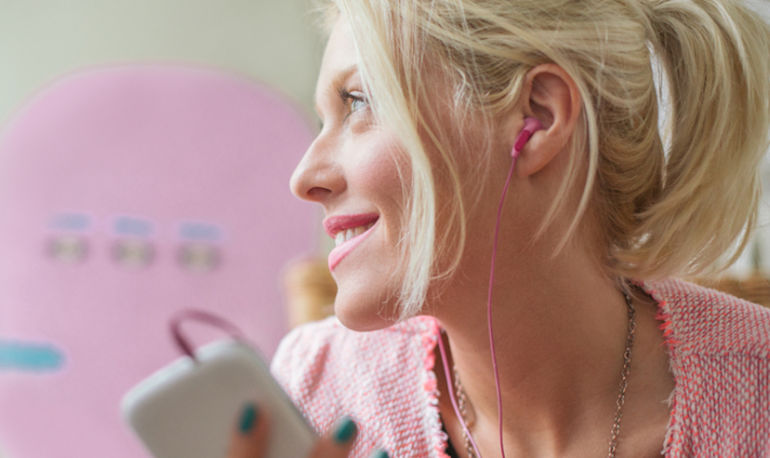
Hands-down, the most practical science I use centers on what neuroscience has taught us about how to boost happiness. The happiness response of the brain focuses on things that we can do to increase the levels of a range of different neurotransmitters in the brain like serotonin and noradrenalin (both decreased in depression), as well as the neurotransmitter dopamine, the pleasure neurotransmitter, among others.
Brain hacks are quick and easy ways to boost happiness that can all be done in four minutes or less. Some of these tricks that neuroscientists have studied to boost our mood you might have already discovered for yourself—but others might surprise you. Here are my six favorite neuroscience “brain hacks” to use whenever you need a quick dose of happy:
1. Have a pillow fight.
Why? A pillow fight is a fun and fast way to get your heart rate up. And neuroscience studies show that aerobic exercise increases levels of the neurotransmitters serotonin, noradrenaline and dopamine, all associated with increased mood or pleasure.
2. Listen to a piece of music that gives you chills.
Neuroscience has shown that those music-induced chills are preceded by the release of dopamine in the brain. This is part of the reason why music can have such a powerful effect on us.
3. Eat some chocolate.
A wonderful bite of something delectable can also increase the release of dopamine in your brain. It doesn’t even have to be chocolate—anything that makes your mouth water will do the trick.
4. Take a walk in nature.
Studies from Stanford University show that walking outside can not only make you happier, but also decreases your tendency to brood and decreases the activation of brain areas associated with brooding. Other studies show that walking can increase your performance on tasks of creativity.
So this one is a triple whammy: walk outside to feel happier, brood less and be more creative!
5. Do something kind for someone else.
Neuroscience studies have shown that altruism, like chocolate, chill-inducing music, and exercise also activates the release of dopamine in your brain.
So the next time you are in need of a hit of happy, try paying for the coffee of the person behind you in line, giving a stranger your seat on the train or giving a donation to a good cause. It turns out making others happy makes our own brains happy as well.
6. Practice a loving-kindness meditation
In this form of meditation, you simply practice developing a sense of loving kindness and acceptance first toward yourself and then towards others around you. Neuroscience studies show that this type of meditation can enhance your emotional responses to positive stimuli and bring you more enjoyment of these positive events.
The bonus is that loving kindness meditation also allows you to be more compassionate towards negative emotional stimuli as well, which can change the way you interact with the world for the better.

No comments:
Post a Comment